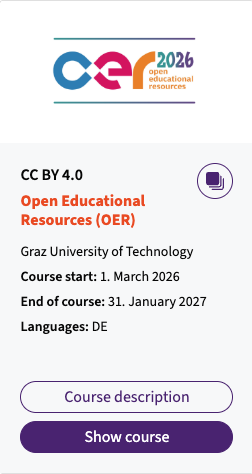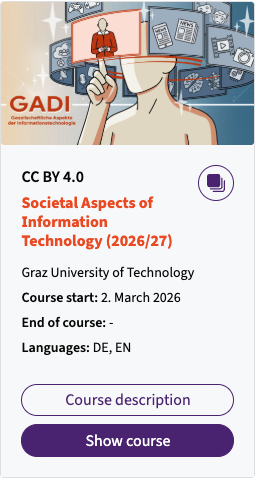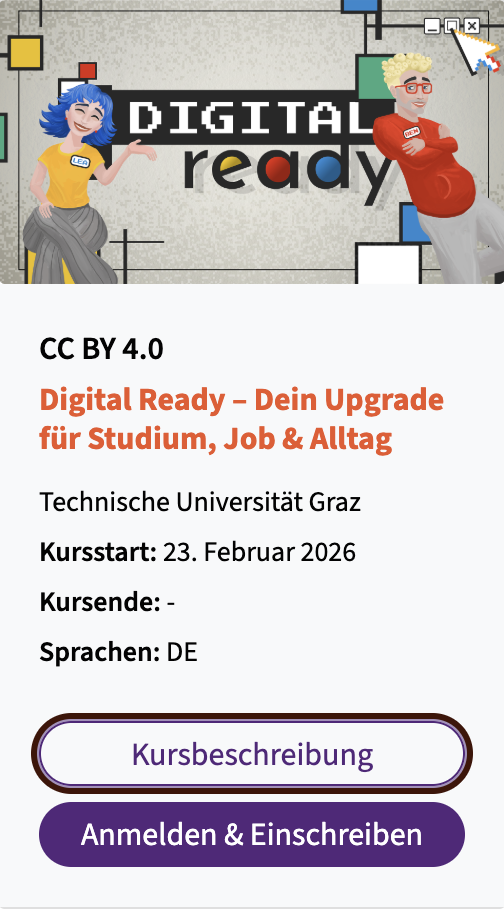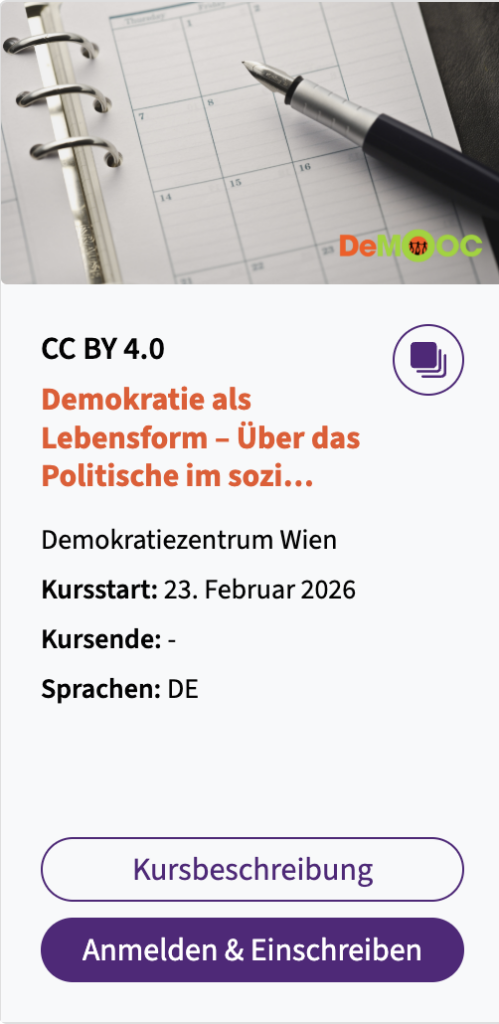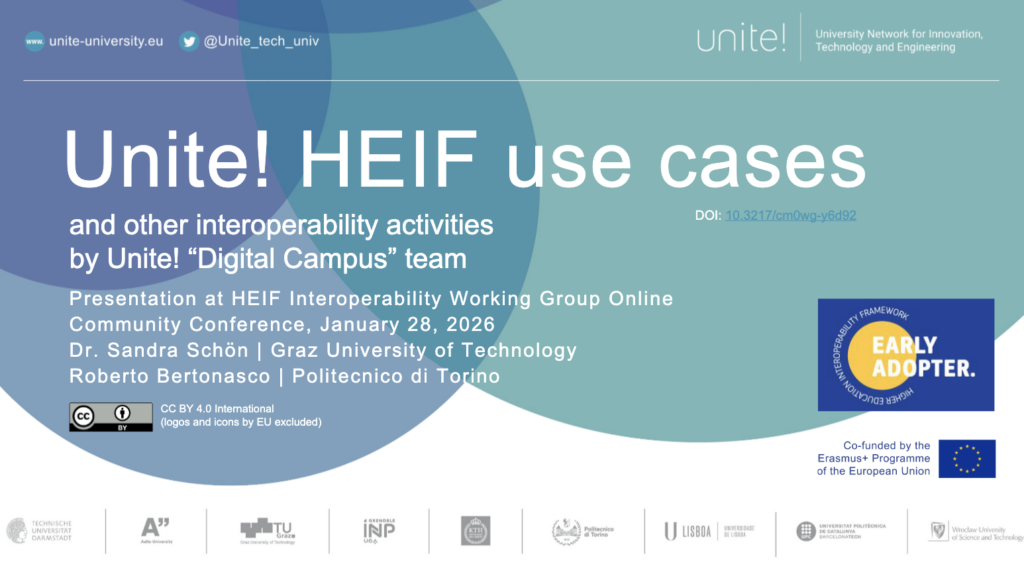Die Universität Wien, Krems, sowie die Universität für Bodenkultur Wien und die TU Graz bieten ab 1.3.26 wieder gemeinsam einen MOOC zu „Open Educational Resources„, welcher auch für das Training zum nationalen OER-Zertifikat eingesetzt wird.
Open Educational Resources (kurz OER) sind Bildungsmaterialien, die frei zugänglich sind und bearbeitet, angepasst und weitergegeben werden können, ohne gegen Urheberrechte zu verstoßen. Das gelingt, weil dazu sog. „offene Lizenzen“ oder gemeinfreie Materialien genutzt werden.
In diesem Kurs wird in das Konzept von Open Educational Resources für Studierende und Lehrende an Hochschulen eingeführt. OER sind nicht nur für internationale Vereinigungen wie UNESCO ein wichtiges bildungspolitisches Thema, OER sind auch ein Bestandteil der Forderung nach „Open Science“.
Im Kurs wird zudem gezeigt, wie und wo OER gesucht und veröffentlicht werden können. Und natürlich werden auch offene Lizenzen wie CC-0, CC BY und CC BY-SA erklärt.
Die Anmeldung ist ab sofort möglich [Link zur Anmeldung]

